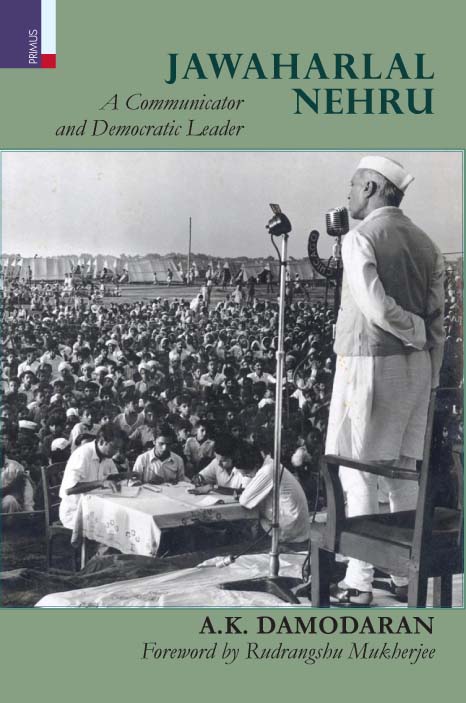Jawaharlal Nehru: A Communicator and Democratic Leader by A.K. Damodaran Foreword by Rudrangshu Mukherjee

Jawaharlal Nehru: A Communicator and Democratic Leader
AUTHOR- A.K. Damodaran, Foreword by Rudrangshu Mukherjee
| HB ₹1450 |
||
INFORMATION
- AUTHOR : A.K. Damodaran, Foreword by Rudrangshu Mukherjee
- HB ISBN : 978-93-5572-523-3
- Year : 2023
- Extent : 398
- Discount available on checkout
- Usually dispatched within 3 to 5 working days.
Jawaharlal Nehru: A Communicator and Democratic Leader explores multiple facets of Nehru’s experiments in communication as a speaker, writer and formulator of policy as a part of the Congress. In all this, we find, he is affectionately influenced by Gandhi; but, he remains himself, in his style, his attitude to socialism and secularism, his excitement about science and his urge to communicate his own anguish at the tragic divisions of the modern era as well as his hopes of a better world to the younger generation in his country. Simultaneously he discovers within himself a remarkable capacity to convey all this and much more through the written word—articles, dispatches, addresses and, most of all, books.
With a Foreword by Rudrangshu Mukherjee for this reissue, this book addresses a dimension of the personality of the first prime minister of India which still does not receive adequate attention. How a shy, if not inarticulate, public speaker became the destiny of the millions is an exciting story. In studying Nehru as an effective communicator, other facets of his interaction with people—his peers, his critics and his friends all over the world necessarily come into the ambit of this work; most important of all is relationship with Gandhi. This book therefore, ventures beyond communication to narrate the whole story of his evolution as a political activist, later to be crowned with success as a major statesman of the twentieth century.
The Author
A.K. Damodaran (1921–2012) studied at the universities of Madras and Lucknow. He took part in the Quit India movement and was imprisoned in Cochin state from 1942 to 1943. A member of the Indian Foreign Service (1953–80), he served as India’s ambassador to Sweden and Italy. He also taught English literature in various colleges in the University of Delhi and international relations at Jawaharlal Nehru University. He was co-editor of Indian Foreign Policy: The Indira Gandhi Years and three collections of V.K. Krishna Menon’s speeches at the United Nations.




